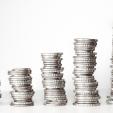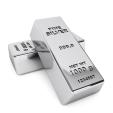Bonds Rise While U.S. Stocks Fluctuate, Oil Drops on Iraq
New York (June 24) U.S. stocks fluctuated while oil fell and Treasuries advanced amid concern over escalating violence in Iraq.
The Standard & Poor’s 500 Index fell 0.1 percent to 1,961.05 at 2:15 p.m. in New York, after erasing an earlier gain of 0.3 percent. Treasury 10-year yields fell three basis points to 2.60 percent. Oil fell 0.4 percent. The Stoxx Europe 600 Index slid 0.2 percent as German business confidence declined. The MSCI Emerging Markets Index climbed 0.6 percent. Dubai’s benchmark gauge tumbled 6.7 percent after entering a bear market yesterday. The pound depreciated against 14 of its 16 major peers.
Equities reversed gains as the Wall Street Journal reported that Syrian warplanes struck targets in a western Iraqi province. Stocks rose earlier after data showed purchases of new U.S. homes rose more than economists forecast in May, while consumer confidence increased this month. German business confidence dropped more than estimated in June amid signs of slower growth.
“If we were ordering the list of our international concerns today, the unpredictable nature of the Middle East would be number one,” Phil Orlando, chief equity market strategist at Federated Investors, said in an interview at Bloomberg headquarters in New York. He helps oversee around $400 billion.
Iraqi Talks
U.S. Secretary of State John Kerry met officials of Iraq’s semi-autonomous Kurdish region in his bid to prod leaders to unite against an al-Qaeda offshoot that has seized control over swaths of the country. The U.S. says sectarian divisions have helped the militants consolidate control over areas of Iraq, OPEC’s second-biggest oil producer, since capturing Mosul on June 10.
Kerry’s talks came amid battles to control a key refinery at Baiji, north of Baghdad, the site of almost two weeks of fighting, and clashes along Iraq’s borders with Syria and Jordan. Syrian warplanes killed at least 50 people in the western Iraqi province of Anbar where the al-Qaeda splinter group has made gains, the Wall Street Journal reported, hitting a municipal building, market and bank in a second day of strikes.
The S&P 500 is up 8.2 percent since a low on April 11 as data showed the economy is recovering from extreme weather and the first drop in first-quarter gross domestic product since 2011. The government’s third revision to the GDP reading, due tomorrow, is expected to show a contraction of 1.8 percent, according to a Bloomberg survey of economists.
Home Sales
Sales of new homes increased 18.6 percent, the biggest one-month gain since January 1992, to a 504,000 annualized pace, figures from the Commerce Department showed today. Home prices in 20 U.S. cities rose at a slower pace than forecast in the year ended in April, separate data showed.
The Conference Board’s index of U.S. consumer confidence increased to 85.2 in June from 82.2 a month earlier, the New York-based private research group said today.
“The rebound after the bad winter seems to be progressing, the outlook for unemployment is a bit better, and the inflation rate appears to be firming,” Plosser said in remarks prepared for a speech to the Economic Club of New York. “Current data suggest economic strength is fairly broad-based.”
Economic Growth
Fed Chair Janet Yellen last week said accommodative monetary policy, rising property and equity prices and the improving global economy should lead to above-trend growth.
Fed policy makers on June 18 trimmed bond buying by $10 billion for the fifth straight meeting, to $35 billion per month, while reiterating that they plan to keep the main rate close to zero. The stimulus has helped propel the S&P 500 higher by as much as 190 percent from a bear-market low in 2009.
The U.S. equities market is experiencing its smallest swings of the year. The S&P 500 moved 0.25 percentage point from its highest and lowest levels yesterday. That followed a swing of 0.24 point on June 20, the narrowest movement in more than 20 years besides a 0.20 point reading in December. The Chicago Board Options Exchange Volatility Index, or VIX (VIX), a measure of S&P 500 options prices, gained 1.6 percent to 11.16 today, trading near its lowest level since 2007.
The index trades at 16.6 times the projected earnings of its members, close to its highest valuation in four years.
Treasury 10-year notes gained early in the day amid speculation an uneven economic recovery will prompt Fed policy makers to keep interest rates low longer. The Treasury sold $30 billion in two-year notes at the highest yield since May 2011.
Bank of England Governor Mark Carney damped speculation of a rate increase, telling lawmakers there’s “more spare capacity in the labor market than we had thought” and that the timing of any interest-rate increase “will be driven by the data.” The comments came less than two weeks after he indicated the BOE’s benchmark might rise from a record low earlier than investors anticipated.
The pound fell 0.3 percent to $1.6984 after rising to $1.7063 last week, its highest level since October 2008.
Source: Bloomberg













